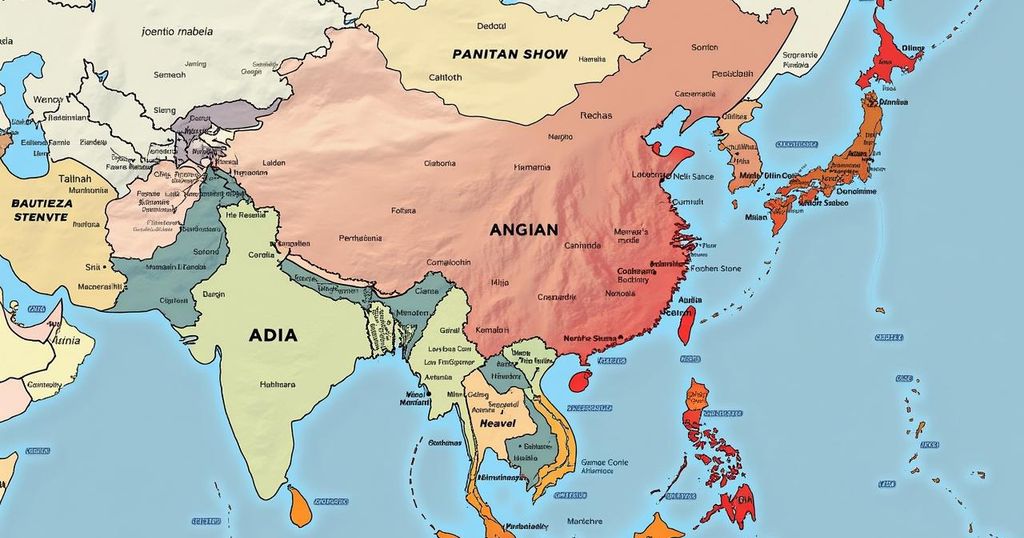Mapping Asian States’ Position on Crimes Against Humanity Convention Through AALCO Records
The article discusses the growing support for the ILC’s Draft Articles on Crimes Against Humanity in Asia, as various states reveal their positions within the framework of the United Nations General Assembly Sixth Committee. AALCO serves as a vital platform for these discussions, reflecting diverse perspectives among Member States while emphasizing the need for a collective approach to treaty discourse that enhances accountability for serious crimes.
The growing support for the International Law Commission’s (ILC) Draft Articles on Prevention and Punishment of Crimes Against Humanity is notable among Member States, especially within the Asian context, as discussions progress within the United Nations General Assembly’s Sixth Committee. Since the adoption of these Draft Articles in 2019, discussions have faced challenges due to a lack of consensus on subsequent actions; however, Resolution 77/249 has facilitated resumed discussions in 2023 and 2024, encouraging states to submit their comments by December 2023. This post examines the contributions and positions of Asian states regarding the Draft Articles, leveraging insights from the Asian-African Legal Consultative Organization (AALCO). Established in 1956, AALCO serves as a crucial platform for 47 member states, fostering dialogue on international law matters reflective of Asian-African perspectives. The organization aims to strengthen legal positions and facilitate cooperation among its members. Over time, AALCO has actively engaged with various international law topics, including crimes against humanity, wherein member states have expressed diverse viewpoints around the ILC’s Draft Articles since 2016. Malaysia, China, and India have raised concerns about the necessity and implications of these Draft Articles, while nations like the Republic of Korea and Japan have manifested their support for consistency with existing international legal frameworks. Overall, there seems to be a gradual but increasing acceptance of the movement towards an international convention on crimes against humanity within Asian states, particularly from nations such as Afghanistan, Myanmar, and Bangladesh. As of the latest developments, discussions concerning crimes against humanity have not been on AALCO’s recent agenda. Nevertheless, the potential for re-inclusion hinges on states advocating for the subject, highlighting the significance of this treaty in enhancing accountability for heinous crimes through national jurisdiction. The Draft Articles provide a timely addition to international law, aimed at bridging gaps in state accountability and extending a cooperative platform for states to develop their capabilities to confront crimes against humanity. To ensure a unified approach in treaty discourse and protection against crimes, active engagement from Asian states is critical moving forward, positioning AALCO as a central figure in these discussions.
The topic of Crimes Against Humanity and the corresponding Draft Articles prepared by the International Law Commission (ILC) has garnered attention within the United Nations, indicating a potential shift towards a comprehensive treaty to address these atrocities. Following the adoption of these Draft Articles in 2019, a stalemate in discussions persisted until the recent Resolution 77/249 initiated resumed sessions to foster debate among states. The examination of records from the Asian-African Legal Consultative Organization (AALCO) reveals the stances of various Asian states, highlighting a spectrum of support and concerns relating to the Draft Articles. The AALCO, an institution committed to discussions on international law pertinent to Asian and African contexts, plays a key role in expressing the collective positions of its member states and facilitating dialogue concerning the framework for legally addressing crimes against humanity.
The analysis of Asian states’ positions on the ILC’s Draft Articles regarding Crimes Against Humanity reveals a complex landscape of support and opposition rooted in national legal contexts and obligations. While some states, like Korea and Japan, advocate for the advancement of a convention based on the Draft Articles, others express caution regarding overlapping duties with existing frameworks like the Rome Statute. As discussions progress, the continued engagement of Asian states with AALCO and the Sixth Committee is imperative to shaping a collective and coherent approach towards establishing robust legal standards against crimes against humanity, thus reinforcing international accountability and justice.
Original Source: opiniojuris.org




Post Comment